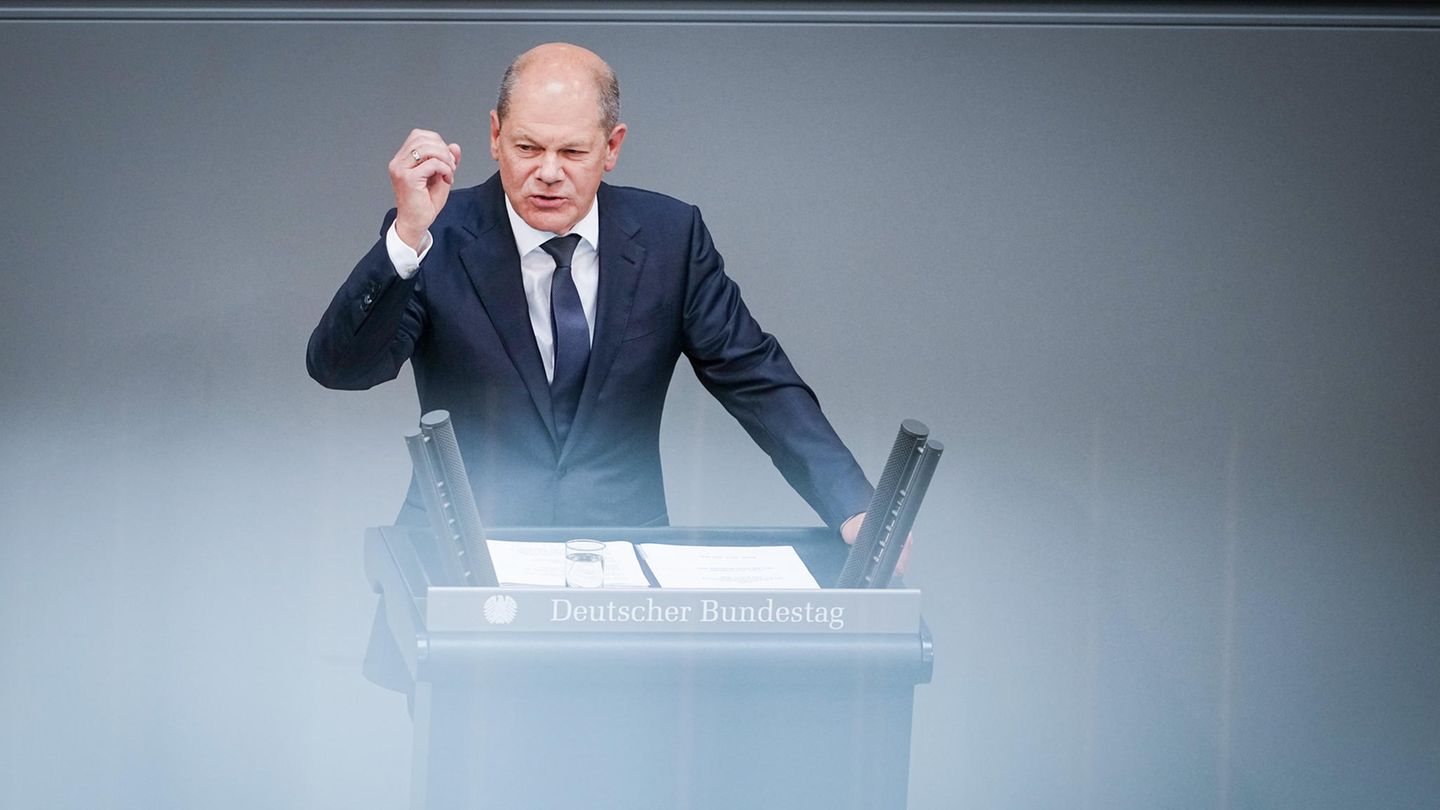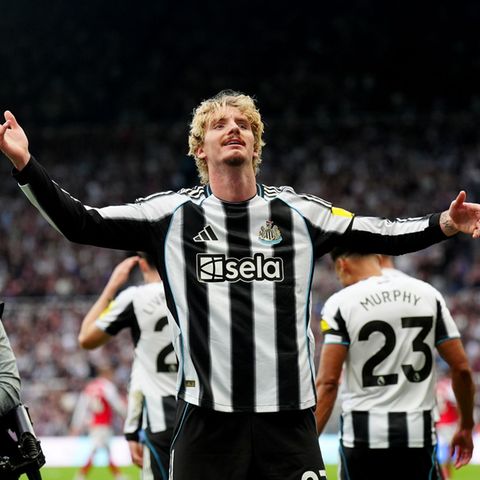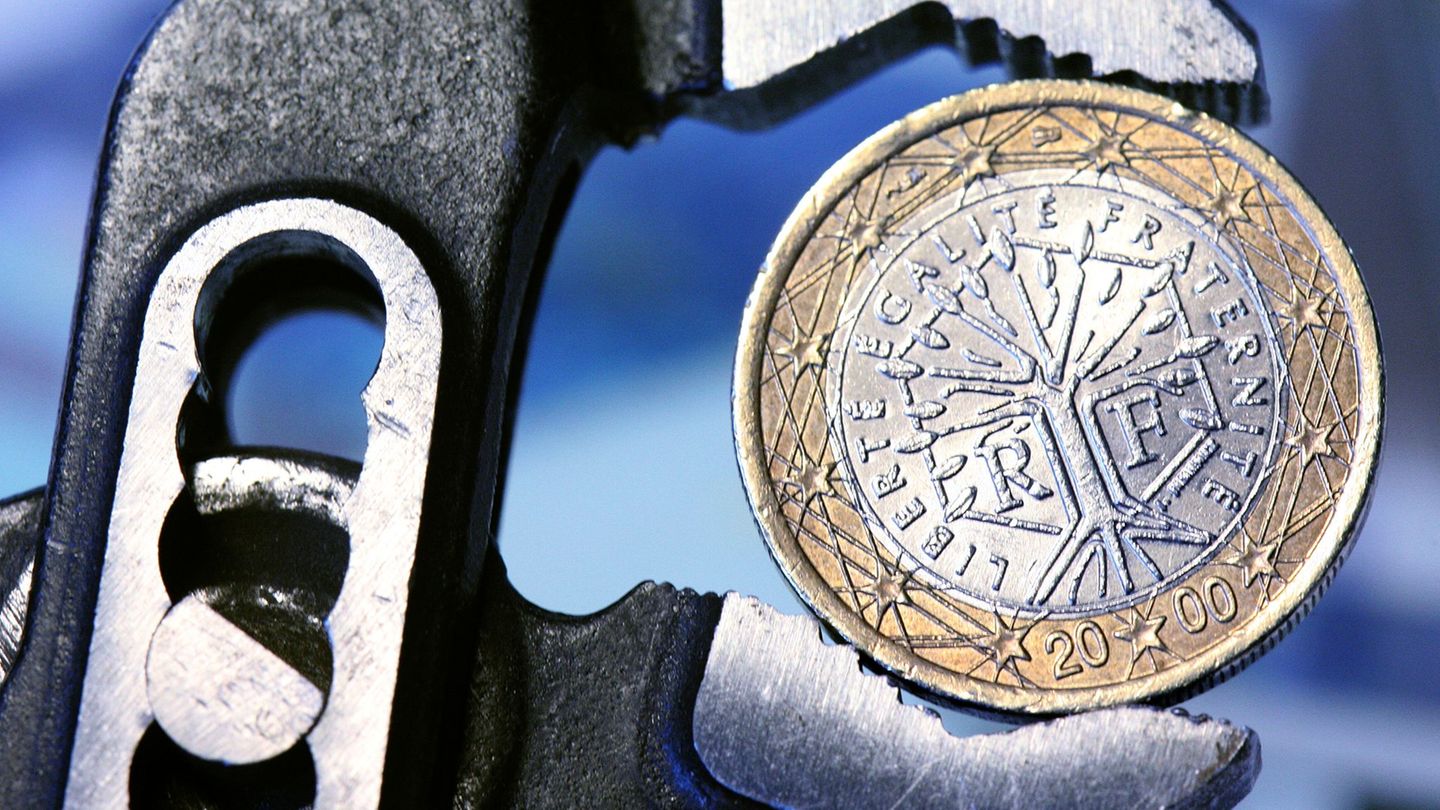analysis
Chancellor Olaf Scholz is trying to dispel the impression that Germany is only acting half-heartedly and hesitantly in the Ukraine war. The image of the Federal Republic is particularly badly damaged in Eastern Europe.
Some call it so, others so. Olaf Scholz says: “We help in many ways.”
How extensively, the Federal Chancellor spread in equally extensive words in the Bundestag: Politically, economically and, not least, militarily, the federal government is bracing itself against Russia “imperialism” and become Ukraine “support for as long as it takes, with all the options we’ve got in the way”.
The federal government is doing a lot, that’s how Scholz wanted it to be understood on Wednesday. “And that could also be acknowledged and not challenged by questions that simply have nothing to do with facts.” With , who had previously, well, done just that.
But not only the leader of the opposition has (desperate) doubts about the German course, which is benevolently perceived as prudent and all too often as hesitant. In the European Union there is now “only upset”complained Merz, “Disappointment about the unclear role of Germany”at all “real annoyance” about the chancellor and his government.
The criticism within the EU is not quite as extensive, but the impression seems to be gaining ground, at least in Eastern Europe, that Germany is only a half-hearted partner in the fight against Russia.
Germany does not cut a good figure in Poland
Indecisive, self-centered, breaking their word: Polish politicians in particular have been harsh on the German government and its course in Ukraine since the beginning of the war.
- “Pointless” are, for example, the telephone calls between Chancellor Scholz and French President Emmanuel Macron with Kremlin ruler Vladimir Putin, . The talks would not benefit Ukraine, they would only bring new credibility to Putin. With regard to arms deliveries, Germany must “finally more” do. “We need concrete actions and not just words and declarations.” Nothing promised by the German side was kept.
-
The deputy foreign minister repeated a few days ago that Poland had not received replacement tanks delivered to Ukraine. “We had such a promise”said Duda. “We hear that the Germans don’t want to keep this promise, that’s for us a big disappointment.”
-
Donald Tusk demanded that Germany must support Ukraine decisively if one is to believe that the Germans have learned the right lessons from their own history. “I don’t praise the Germans because they have a lot on their plate and share responsibility for the current situation in the region”and leader of the main opposition party.
-
Shortly after Russian troops invaded Ukraine, Prime Minister Mateusz Morawiecki was stunned by the German delivery of 5,000 helmets to Ukraine. “5000 helmets? This must be a joke“and denounced the “stone selfishness” of Germany.
Yes, Germany is not doing well in Poland right now.
In particular, the hesitation in delivering arms to Ukraine has damaged Germany’s image, says Piotr Buras, head of the Warsaw office of the European Council on Foreign Relations think tank.
“The Poles are actually quite disappointed across the board and also surprised that Germany is not up to date here”. “Germany would be expected to take the lead in a massive crisis we are witnessing today and not lag behind events and other allies.”
Berlin’s increasing loss of importance
Others initially preceded them. Poland, but also Estonia, the Czech Republic and Lithuania, decided early on when the Russian war of aggression began to send weapons and ammunition to Ukraine. Standing shoulder to shoulder when other EU countries (like Germany) were still preparing for it. And the eastern EU member states also stepped up the pace when it came to sanctions. Based on my own experiences with “aggressive Russian policy” one must set an example for the West, as Czech Prime Minister Petr Fiala did at the time.

Teaser image: John MacDougall/AFP
In this respect, the advance of the former Eastern Bloc states illustrates a role reversal, so to speak. For years, all eyes have been on Brussels, Paris and Berlin, but the states of East Central Europe are now showing an increasing willingness to go their own way. Germany and Angela Merkel in particular were considered to be important pacesetters, the then Chancellor distinguished herself as a committed negotiator and , who once again threw her political weight into the balance.
Now Chancellor Olaf Scholz, whose actions are perceived as hesitant and hesitant, says the Russia policy under Merkel’s patronage can ultimately be considered a failure. “Ostpolitik is now Lostpolitik”, judges the US political magazine , the Federal Republic is in a lost position with its former strategy, so to speak. A loss of meaning.
“We don’t need German protection; history has proven it is on the wrong side of history”quoted “political” an unnamed diplomat from Eastern Europe who criticized the long-standing policy of soft-handling with Moscow. “Poland has shown good leadership in relation to Russia, in taking in Ukrainian refugees, in phasing out gas. The Baltics have wise leaders. Bulgaria has a new, credible government. Romania is stable”the diplomat continued.
In a combative speech, Scholz defended his course in the Ukraine war and promised weapons deliveries of a new quality. Germany wants to equip Ukraine with multiple rocket launchers, a modern anti-aircraft system and a tracking system designed to detect artillery positions.
The chancellor thus struck out for a liberating blow “extensive help” from Germany should again emphasize and underpin. Whether it will be effective remains to be seen. In any case, the Ukrainian ambassador in Berlin, Andrei Melnyk, was pleased: “We can finally say from the bottom of our hearts to Chancellor Scholz: Thank you!”said the diplomat on Thursday. “Now one can really speak of a turning point for Ukraine. We hope for further modern weapon systems from Germany.”
Source: Stern
David William is a talented author who has made a name for himself in the world of writing. He is a professional author who writes on a wide range of topics, from general interest to opinion news. David is currently working as a writer at 24 hours worlds where he brings his unique perspective and in-depth research to his articles, making them both informative and engaging.




